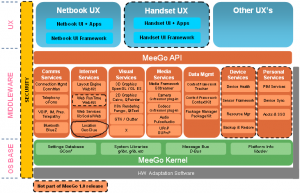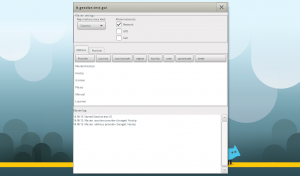After spending the last week attending the GUADEC, it’s time to share some thoughts and impressions. The warm-up days were not such bad after all; some networking, hacking face-to-face with people you only know from irc or email. Also, some important meetings took place during those days and it’s a good forum for exchanging information and ideas about Gnome and Free Software.
Besides, I think those early, and probably more relaxed, days are the perfect moment to perform activities like the GNOME Developer Training. It was a very good experience, from the feedback I’ve got. I think it was the proof that it fits fine in the GUADEC purposes and, having more time for planning and some additional marketing actions, the success of future editions will be guaranteed. In my opinion, this training is a very interesting marketing tool to get more companies involved in Gnome and Free Software, providing some knowledge to ease the change.
Thinking about it, I think it could be a good idea to prepare some meetings with local companies where next conferences will take place. Some months before the GUADEC, a marketing plan should targeting the local companies and governments to embrace this kind of courses as a way of understand both, social and business, advantages of Free Software.
Once we reached the Core days the technical conferences got the spotlight. They were really interesting, as always, full of new and interesting stuff. The Luis Villa key note at the opening talk, even not being breaking news, gave me the clear message that Gnome Desktop should look at the Web if it wants to keep, at least, its relevance in the desktop and mobile markets.
During the talk about WebKitGtk presented by Xan López and Gustavo Noronha, this fact was exposed again in detail. They suggested a new path for GNOME to strengthen the community and get new developers interested in Web technologies that could help the Desktop to become a more integrated tool.
There were several other talks about Web and Javascript as the perfect language for UX development. Specially interesting the talk given by John Palmieri, titled The future is Javascript; let see 🙂
Another interesting talk I would like to remark is the one made by Bastian about GeoClue. Despite not having too many improvements since the last GUADEC, I think this is one of the most promising projects in the GNOME/freedesktop environment. Geolocation will be one of the keys of the new devices, not only mobile phones, but any kind of device which is designed to be carried while traveling; I mean laptops, tablets, wayfinder navigators, portable TVs and the like.
And finally, the talk about Grilo presented by Iago. The Grilo component was presented to a quite interesting audience; its architecture, main features like searching and browsing, and potential uses of this piece of software. I think this component will play an important role in the future, since Internet, as media content provider, is reaching high rates of use, stealing users from the typical channels like TV, DVDs, or even direct downloads.

